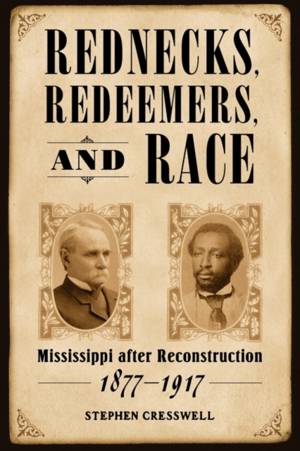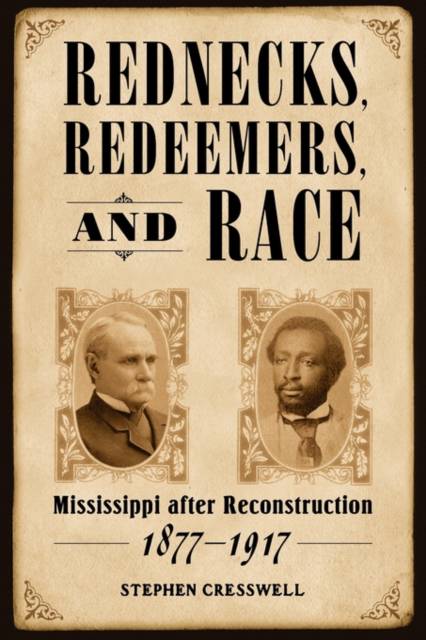
- Retrait gratuit dans votre magasin Club
- 7.000.000 titres dans notre catalogue
- Payer en toute sécurité
- Toujours un magasin près de chez vous
- Retrait gratuit dans votre magasin Club
- 7.000.0000 titres dans notre catalogue
- Payer en toute sécurité
- Toujours un magasin près de chez vous
59,45 €
+ 118 points
Format
Description
A history of the paradoxical time when the state's technology advanced and race relations deteriorated Mississippi saw great change in the four decades after Reconstruction. Between 1877 and 1917 the state transformed. Its cities increased rapidly in size and saw the advent of electric lights, streetcars, and moving pictures. Farmers diversified their operations, sharply increasing their production of corn, sweet potatoes, and dairy products. Mississippians built large textile mills in a number of cities and increased the number of manufacturing workers tenfold. But many things did not change. In 1917 as in 1877, Mississippi was a top cotton producer and relied more heavily on cotton than on any other product. In 1917 as in 1877 the state had troubled race relations and was all too often the site of lynchings and race riots. Compared with other states in 1917, Mississippi was near the bottom of the list for length of the school year, for percentage of farms that boasted tractors, and for the number of miles of paved or gravel roads. Mississippi was the least urban and most agricultural state in the nation. Rednecks, Redeemers, and Race: Mississippi after Reconstruction, 1877-1917 examines the paradox of significant change alongside many unbroken continuities. It explores the reasons Mississippi was not more successful in urbanizing, in industrializing, and in reducing its reliance on cotton. The volume closes by looking at events that would move Mississippi closer to the national mainstream. Stephen Cresswell is professor of history at West Virginia Wesleyan College and is the author of Multiparty Politics in Mississippi, 1877-1902 (University Press of Mississippi) and Mormons and Cowboys, Moonshiners and Klansmen: Federal Law Enforcement in the South and West, 1870-1893.
Spécifications
Parties prenantes
- Auteur(s) :
- Editeur:
Contenu
- Nombre de pages :
- 283
- Langue:
- Anglais
- Collection :
Caractéristiques
- EAN:
- 9781617030369
- Date de parution :
- 02-12-10
- Format:
- Livre broché
- Format numérique:
- Trade paperback (VS)
- Dimensions :
- 152 mm x 229 mm
- Poids :
- 435 g

Les avis
Nous publions uniquement les avis qui respectent les conditions requises. Consultez nos conditions pour les avis.






